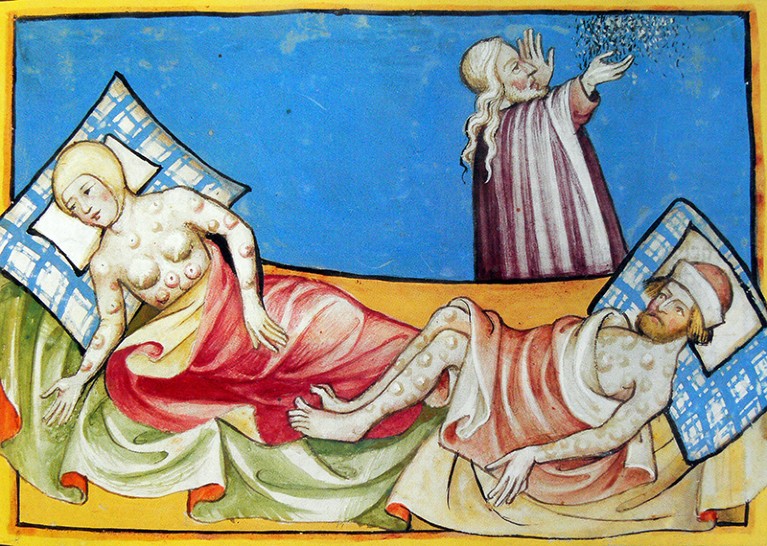Genomic Impacts on the Human Immune System
"When the Black Death swept through northern Africa and Eurasia in the mid-fourteenth century, it killed up to half of the human populations there, reshaped history — and potentially changed the course of human evolution.""A study published on 19 October in Nature1 suggests that lingering scars from the bubonic plague, which was caused by the bacterium Yersinia pestis, can be found in genes involved in the modern human immune system. Four DNA variants in particular seem to have become more common after the Black Death, and might have contributed to survival."Genes that might have aided survival during the Black Death are now linked to autoimmune disorders. Nature

“Diseases and epidemics like the Black Death leave impacts on our genomes, like archeology projects to detect.""This is a first look at how pandemics can modify our genomes but go undetected in modern populations. These genes are under balancing selection — what provided tremendous protection during hundreds of years of plague epidemics has turned out to be autoimmune related now.""A hyperactive immune system may have been great in the past but in the environment today it might not be as helpful."Hendrik Poinar, Professor of Anthropology, McMaster University
"Our genome today is a reflection of our whole evolutionary history [as we adapt to different germs]", senior author Luis Barreiro explained of the conclusions reached by a team of scientists for a study published in the journal Nature. As example, some pathogens such as those behind the bubonic plague had a large impact on current-day immune systems. Current populations were left a biological legacy -- which helped our ancestors survive the Black Death, the end result being that it may make us more susceptible to some diseases encountered today.
In the 14th century, the Black Death represented the single most deadly event in recorded history as it spread relentlessly throughout Europe, the Middle East and northern Africa, in the process eradicating up to 30 to 50 percent of the population. Dr. Barreiro and colleagues at the University of Chicago, McMaster University in Hamilton, Ontario and the Pasteur Institute in Paris examined ancient DNA samples from bones of over 200 people from London and Denmark who had perished over a period of roughly100 years before, during and following the Black Death sweeping through the region.
Four genes which -- depending on the variant identified -- either protected against -- or increased susceptibility to -- the bacteria that caused bubonic plague; most often transmitted by the bite of an infected flea. What had assisted people in Medieval times was found to have led to problems generations following -- raising the frequency of mutations detrimental in modern times.
Crohn's disease, rheumatoid arthritis and lupus represent certain autoimmune disorders, for example, found to have an association with some of the same genetic variants identified as protective against the plague. In diseases of this kind the immune system that defends the body against disease and infection attacks the body's own healthy tissues. "A hyperactive immune system may have been great in the past but in the environment today it might not be as helpful", explained Hendrik Poinar, anthropology professor at McMaster, another of the study's senior authors.
Although past research sought to examine how the Black Death affected the human genome, Dr. Barreiro is convinced that theirs represents the first demonstration that the Black Death held an important place in the evolution of the human immune system. The narrow time window associated with the event is a unique aspect of the study. Leading to a question: Will the COVID-19 pandemic leave a large impact on human evolution? Since the death rate is so much lower and the majority of people who died in the current pandemic already had borne children, Dr. Barreiro does not think that to be the case.
It is the fact that an anticipated appearance of more deadly pandemics in the future that may continue to shape humanity at the most basic level of the immune system function, that may go on to shape the future.
"The team focused on genes related to immunity and found four DNA variants that seemed to have been selected for during the Black Death in samples from both the United Kingdom and Denmark. One variant affected the expression of a gene called ERAP2. People with the variant produce a full-length version of an RNA molecule that encodes the ERAP2 protein; those who lack it make a shorter version of the RNA."Nature
Labels: Bubonic Plague, Genomic Inheritance, Immune System, Research

0 Comments:
Post a Comment
<< Home